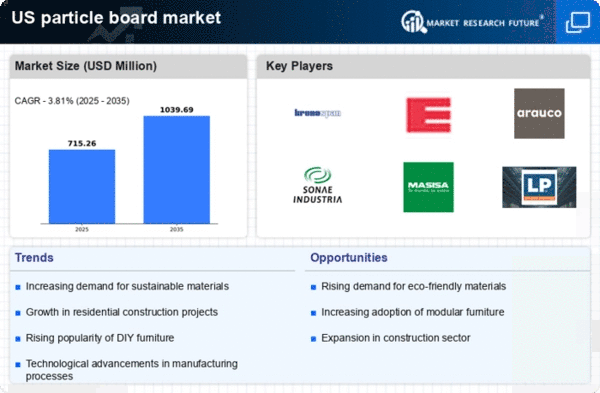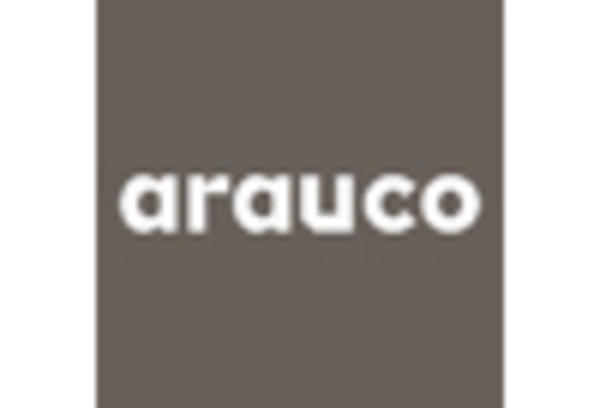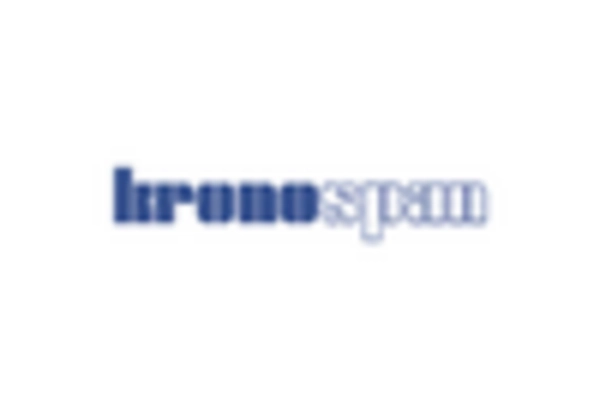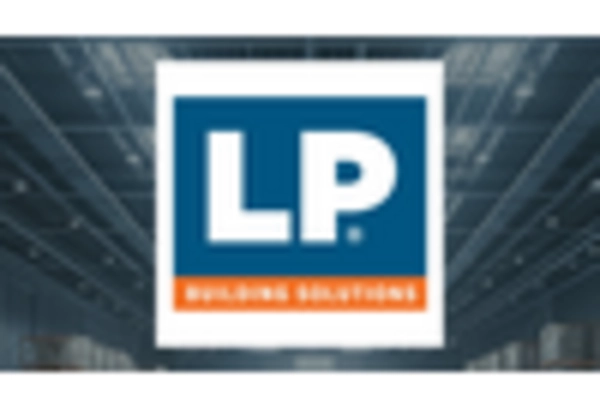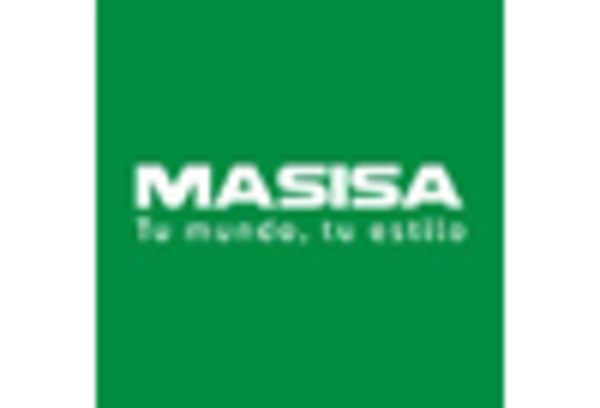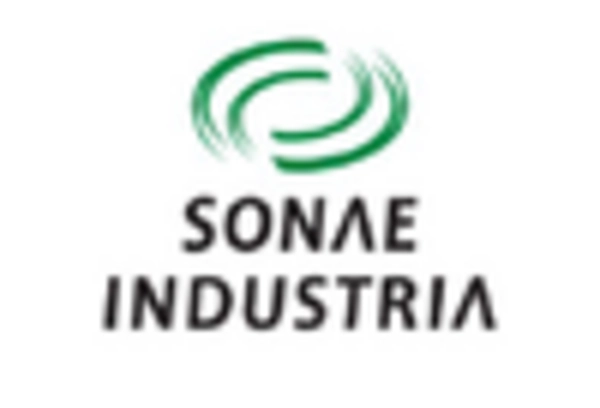Growth in the Construction Sector
The particle board market is benefiting from the robust growth in the construction sector across the United States. With an increase in residential and commercial building projects, the demand for cost-effective and versatile materials like particle board is on the rise. In 2025, the construction industry is expected to expand by 10%, which directly correlates with the increased consumption of particle board for applications such as flooring, cabinetry, and furniture. This trend suggests that manufacturers who can efficiently supply high-quality particle board will likely see substantial growth opportunities as the construction sector continues to flourish.
Increased Use in Furniture Production
The particle board market is experiencing a surge in demand due to its widespread use in furniture production. As consumers seek affordable yet stylish furniture options, manufacturers are increasingly turning to particle board for its versatility and cost-effectiveness. In 2025, it is estimated that the furniture segment will account for over 40% of the total particle board consumption in the United States. This trend indicates a strong market potential for companies that specialize in producing high-quality particle boards tailored for the furniture industry, as they can capitalize on the growing consumer preference for budget-friendly furnishings.
Rising Demand for Eco-Friendly Materials
The particle board market is experiencing a notable increase in demand for eco-friendly materials. As consumers become more environmentally conscious, manufacturers are responding by producing particle boards that utilize recycled wood and sustainable adhesives. This shift aligns with broader trends in the construction and furniture sectors, where sustainability is becoming a key purchasing criterion. In 2025, the market for eco-friendly particle boards is projected to grow by approximately 15%, driven by both residential and commercial applications. This growth reflects a significant opportunity for companies to innovate and capture market share by offering products that meet the evolving preferences of environmentally aware consumers.
Regulatory Support for Sustainable Practices
The particle board market is positively influenced by regulatory frameworks that promote sustainable practices within manufacturing. Government initiatives aimed at reducing carbon footprints and encouraging the use of renewable resources are driving manufacturers to adopt more sustainable production methods. In 2025, it is anticipated that compliance with these regulations will lead to a 20% increase in the production of eco-friendly particle boards. This regulatory support not only enhances the market's sustainability profile but also positions companies favorably in the eyes of consumers who prioritize environmentally responsible products.
Technological Innovations in Manufacturing Processes
The particle board market is witnessing advancements in manufacturing technologies that enhance production efficiency and product quality. Innovations such as automated cutting and pressing techniques are reducing waste and improving the consistency of particle board products. These technological improvements not only lower production costs but also enable manufacturers to meet the growing demand for customized solutions. As a result, the market is projected to see a 12% increase in production capacity by 2026, allowing companies to better serve diverse customer needs while maintaining competitive pricing.


